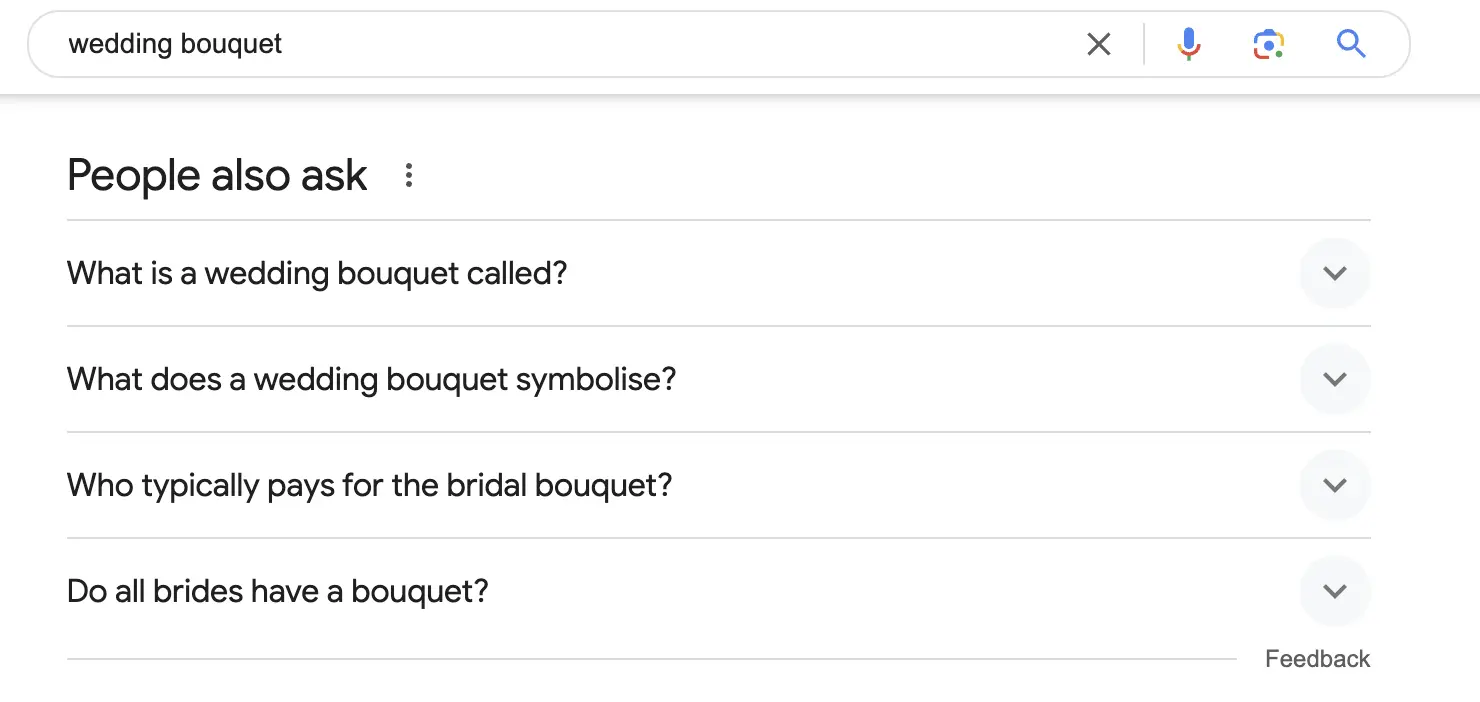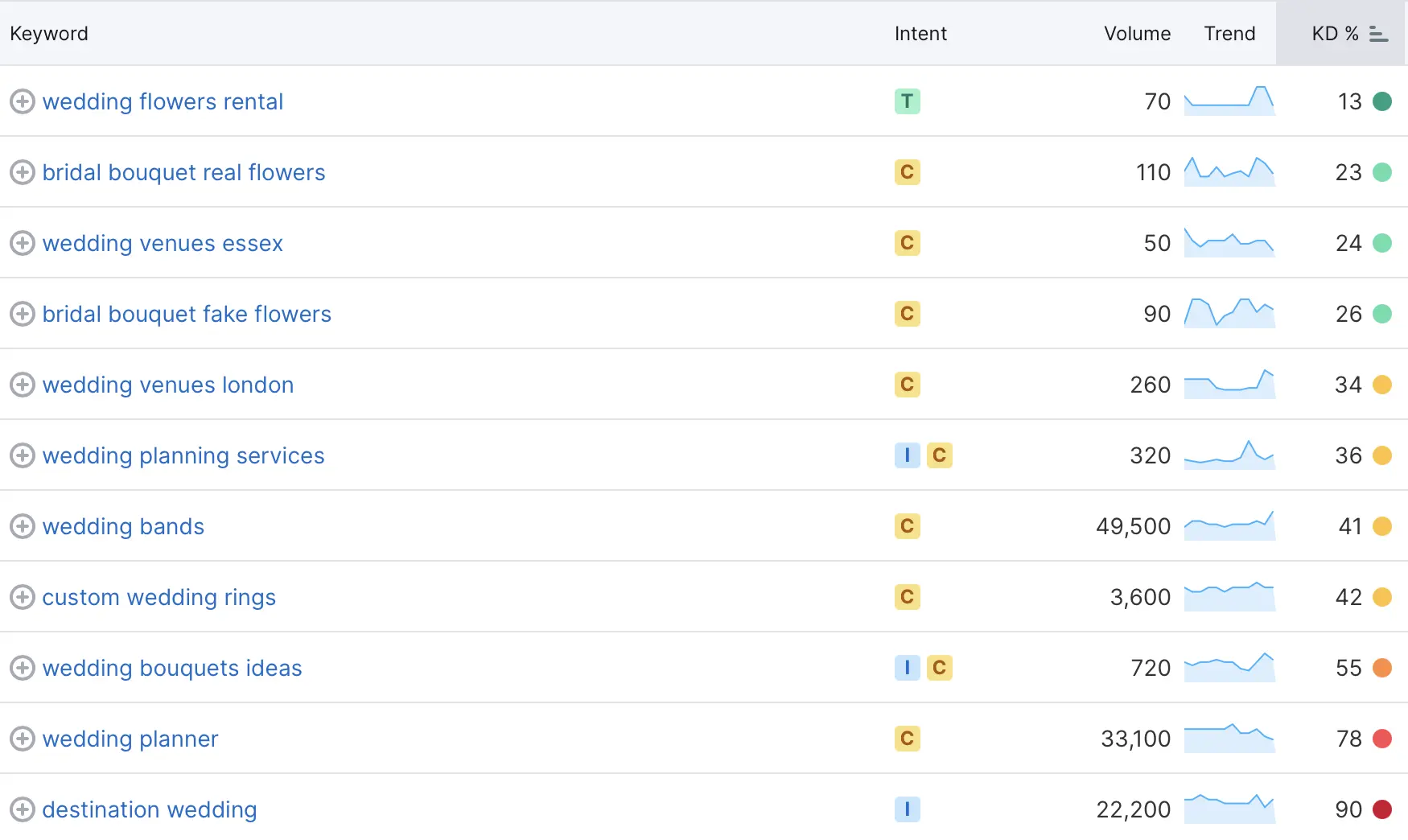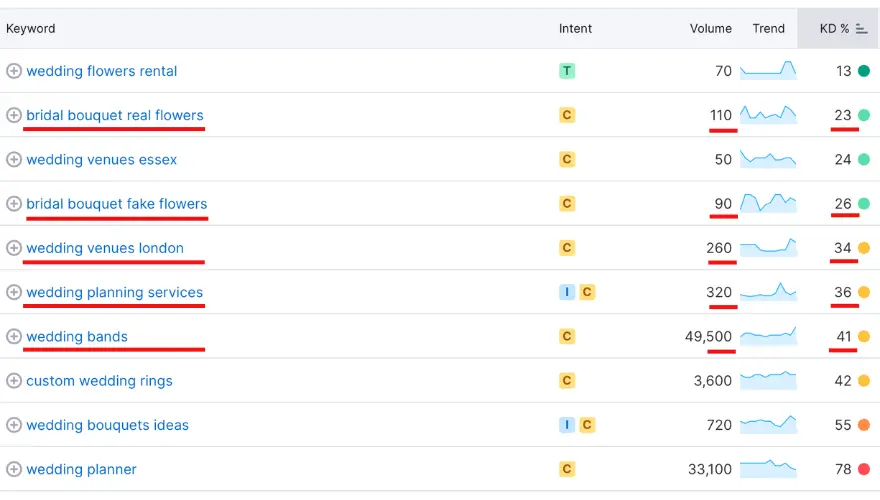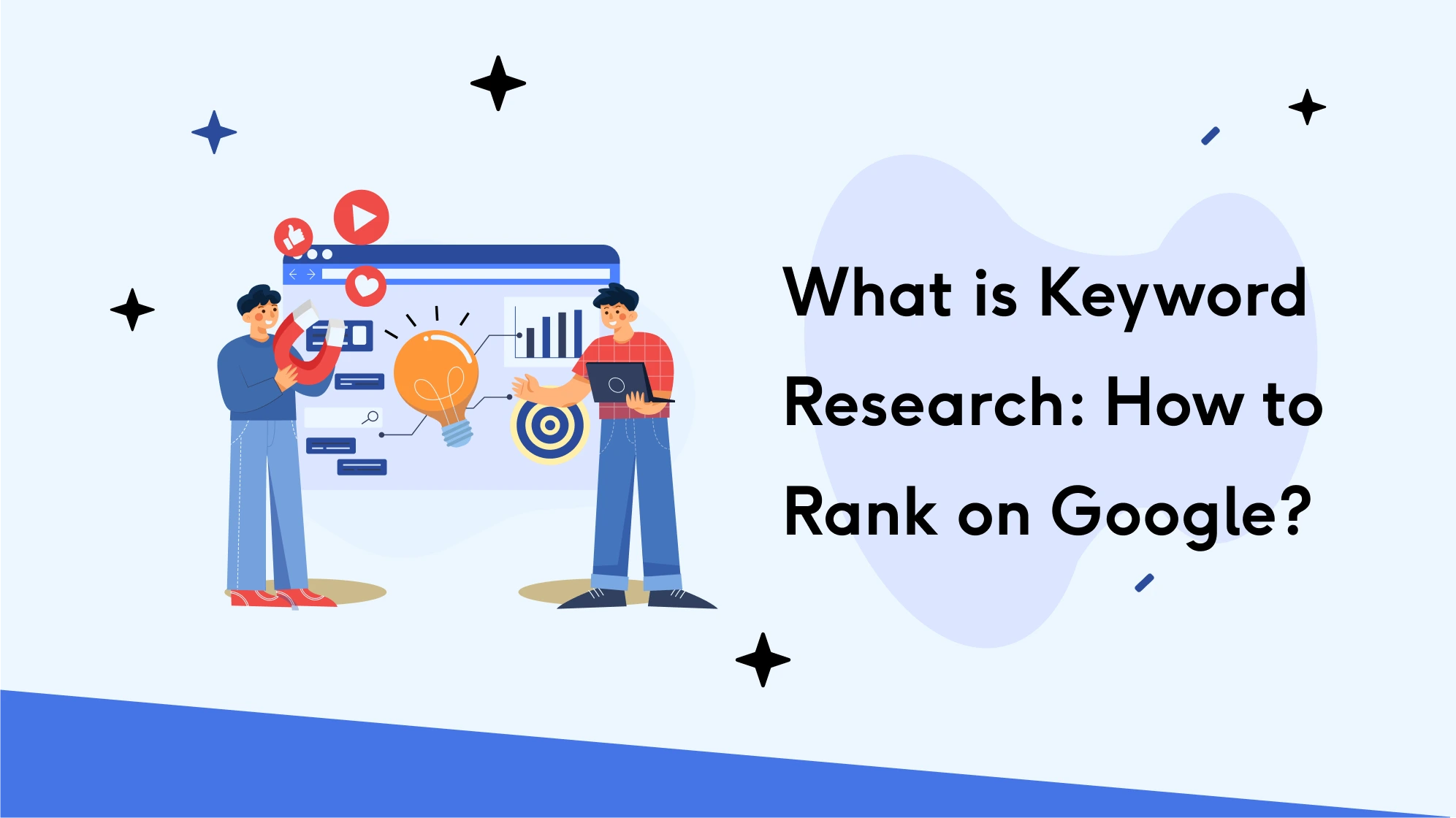Growing your business presence online is tricky, especially if you don’t know where to start. Websites are created not only for customers, but also for Google itself and understanding how your website is read by the search engine is an important part of creating content. One of the most important aspects of creating “successful” online content is “keyword research”. In this blog post we’re going to talk about what keywords are and how they can help you rank on Google.
What are keywords?
Google wants to provide you with the most relevant answer, product or service you're looking for when searching the web. To do that it uses “keywords” that are the most relevant to the topic or question you are asking. Those search terms are crucial for search engine optimisation (SEO) and digital marketing because they help you understand what people search online and create relevant, ranking content.
In other words:
Keywords are specific words or phrases (queries) that users type into search engines when looking for information on a particular topic.
They bring us to an important aspect of digital marketing and ranking on Google: SEO
What is SEO?
Search Engine Optimisation (SEO) is the process of improving your website so that it ranks higher in search engine results like Google. The goal is to make your site more visible to people who are searching for products, services, or information related to your business.
As a digital marketer you should understand how this impacts google ranging and organic search. To do that you should understand how Google interprets your search and how it looks for the correct result.
Organic Search refers to the process of finding information on the internet through a search engine like Google, Bing, or Yahoo, without the use of paid advertisements. When a user types a query into a search engine and clicks on a non-paid result, this is considered an organic search
Google Search Results
Google uses complex algorithms to determine the relevance and ranking of a web page based on a search term. Here’s a simplified breakdown of the process:
Crawling | Indexing | Understanding the Query |
First, Googlebots (spiders) crawl the web, following links and reading pages to collect information. | The information collected is then stored in Google’s index. This includes text, images, and other data found on the page. | When a user enters a search query, Google interprets the intent behind the query using natural language processing (NLP) |
Lastly the engine ranks the content based on several factors. It accesses how relevant the content is to a query asked, here it checks for keywords in the content, meta data, and headers. Then it evaluates the quality of the content by checking user engagement, backlinks and social shares. It applies context to your search, including your location, previous search history and personal preferences. Lastly it check the user experience of your websites checking page load speed, mobile-friendliness, and secure connections (HTTPS).
Based on these factors it give a page a rank relevant to the query searched. Only the first 10 top ranked websites show on the first page of Google results and it is extremely important that you website lands in that top 10.
Approximately 75% of users never scroll past the first page of search results, so it is crucial to rank high if you want your content to be visible.
To better understand how keywords influence google, here is an example:
If you type in “app development essex” into google, you quickly get the results google thinks is the most relevant.

As you can see the “relevant” result has the keyword “app development” and “Essex” both in the meta title, in the meta description and in the url. Google even highlight those for you in the meta description to make it more visible.
Meta Data refers to the information about your web page that Google uses to understand and display your page in search results. This includes:
Meta Title: The headline that appears as the clickable link in Google search results.
Meta Description: The brief summary below the title that describes what your page is about.
Where to start your keyword research?
You now know what keywords are and how google ranks your content based on them. But how do you find your own keywords? It may seem complicated at the beginning, but is a fairly easy process.
Start with simply brainstorming topics related to your website, business or the service you provide. For example if your are running a wedding planner business, and your want to write blogs that will bring customers to your website. Your initial keywords might include “wedding planner”, “wedding organisation” or “wedding venues”. When you have the initial general list, you can start adding more broader terms to fill out your list. In our example we could add specific services like “wedding flowers rentals”, “wedding bands”, “wedding planning services” or other terms related to weddings like “destination wedding”, “custom wedding rings” etc.
At his point you can use Google to help you find more relevant queries. Simply type in on off the search terms and analyse what pops up:

If you scroll down a little bit, the “People also search for” section appears. This can give you some nice new ideas for relevant keywords.
How to choose the best keywords?
After you create a nice list of search terms you will have to decide which ones your content will “aim” for.
To analyse your keywords you can use different tools, such as:
All of them provide you with statistics and insights into your keywords and your website SEO.
Understanding Keyword Statistics
To explain the statistics that those tools provide we’re going to use the example above. Again you are a wedding business looking to promote your content.
If you use one of the tools above, you will be provided with some insights into your specific search terms:

These are three important metrics that you should know how to interpret and use.
Search Intent
Depending on what people look for they do it for different reasons, whether they are looking for information, a product or a services that will ask different questions and type in different queries.
They are four recognised categories of intent in Google:
Transactional | Informational | Commercial | Navigational |
Users are looking to make a purchase or perform a specific online activity. | Users are looking for information or answers to specific questions. | Users are researching products or services before making a purchase decision. | Users are trying to find a specific website or webpage. |
So, for example when people search for “wedding planning services” ( I C ) they are looking for information about what they are , and also search for a provider of the service. Understanding that can help you come up with a relevant blog topic.
Search Volume
They second column show the search volume which shows you how often the term is searched for in a month. In our example “wedding bands” and “wedding planner” have the biggest volume in the USA.

Keyword Difficulty Score
An important metric is the KDS score. It tells you how competitive the specific keyword is and how hard it is to rank in the top 10 pages of Google.
For example “wedding planner” has a big search volume, but it is also very hard to rank for with KDS = 78. This means that new sites, blogs or pages will have a hard time ranking for that specific query.
How to choose the best keywords?
Taking into account these three statistics we can choose the best keywords to start with. In the begging you should drop the extremely hard keywords if possible. If you can find other relevant topics to write about choose keywords that are between 0-29 (easy) and 30-49 (possible). You have the highest chance of ranking high for them if you implement the SEO when creating content. So in our case five keywords good to start with would be:

Those search terms are relatively easy or possible to rank for, and have a significant volume of searches each month.
You can put these down for your list of possible content ideas and start your digital marketing journey.
What to do next?
Keyword research is the cornerstone of successful online content creation and digital marketing. By understanding what keywords are and how they help Google rank your content, you can effectively improve your website’s visibility and attract more visitors. Start by brainstorming relevant topics, expand your list with broader terms, and utilize tools like Moz, Google Keyword Planner, and Semrush to analyze your keywords. Focus on keywords with manageable competition and significant search volume to increase your chances of ranking high. With this foundation, you’re ready to optimise your content and grow your business presence online.
Read more about how to optimise your content on our blog posts on writing effective meta data and creating content that ranks on Google. Happy optimising!
